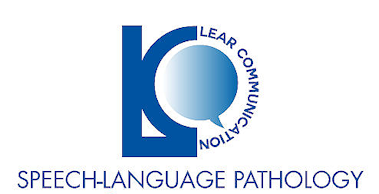SLPs at Lear Communication dedicate themselves to continuing education. We provide evidence-based treatments and also use our clinical judgement to assist with addressing the most meaningful communication demands in our client’s lives. We work with our clients to maximize communicative competence in the community, with oved ones or for academic or vocational success.
Recently, one of our SLPs attended Sheila MacDonald’s workshop on the Management of Subtle but Significant Cognitive and Communication Challenges after Stroke, Concussion and Acquired Brain Injury. Her workshop provided in-depth education surrounding the assessment and treatment of subtle, yet significant communication deficits experienced by patients who have sustained a mild traumatic brain injury.
What can cause a mild traumatic brain injury?
A mild traumatic brain injury can be the result of:
- Motor vehicle accident
- Concussion
- Post Concussion Syndrome
- Falls
- Blunt trauma (hit to the head)
- Stroke
What communication deficits are commonly seen as a result of mild traumatic brain injury?
The following communication difficulties are commonly experienced by individuals who have sustained a mild traumatic brain injury:
- Difficulty finding specific words
- Difficulty speaking in a fluent, organized way
- Difficulty understanding things that are said to you
- Difficulty understanding what you read
- Difficulty conducting conversations in social settings
- Slower processing of information
- Difficulty paying attention
- Difficulty remembering things (in conversation or information)
- Difficulty managing schedules
- Difficulty staying organized
- Difficulty making decisions
- Difficulty moderating reactions in daily life
How can we help?
Speech-language pathologists who attended this workshop received specific education on how to conduct functional treatment for the above difficulties. The framework for functional treatment includes:
- Individualized goal setting in conjunction with you
- Teaching strategies to manage areas of difficulty and letting you decide which ones work best for you
- Conducting treatment in meaningful context that is directly applicable to your daily living
- Implementing routines that can help decrease the difficulties you are experiencing
- Providing direct instruction on ways to better manage the areas you are having difficulty in
- Including communication partners in therapy and training them as well as you, to make your communication experiences more positive
- Using tasks and projects that are meaningful to you that help build the skills you have set goals for
- Providing you with the knowledge to self-coach when you’re living life outside of therapy sessions
Here at Lear, all speech-language pathologists and communicative disorders assistants implement this functional treatment approach. If you are interested in learning more about functional treatment for traumatic brain injury, call 905-346-1008 (St. Catharines) or 905-667-1441 (Hamilton) or send an email to info@learcomm.ca to speak to a registered speech language pathologist.

